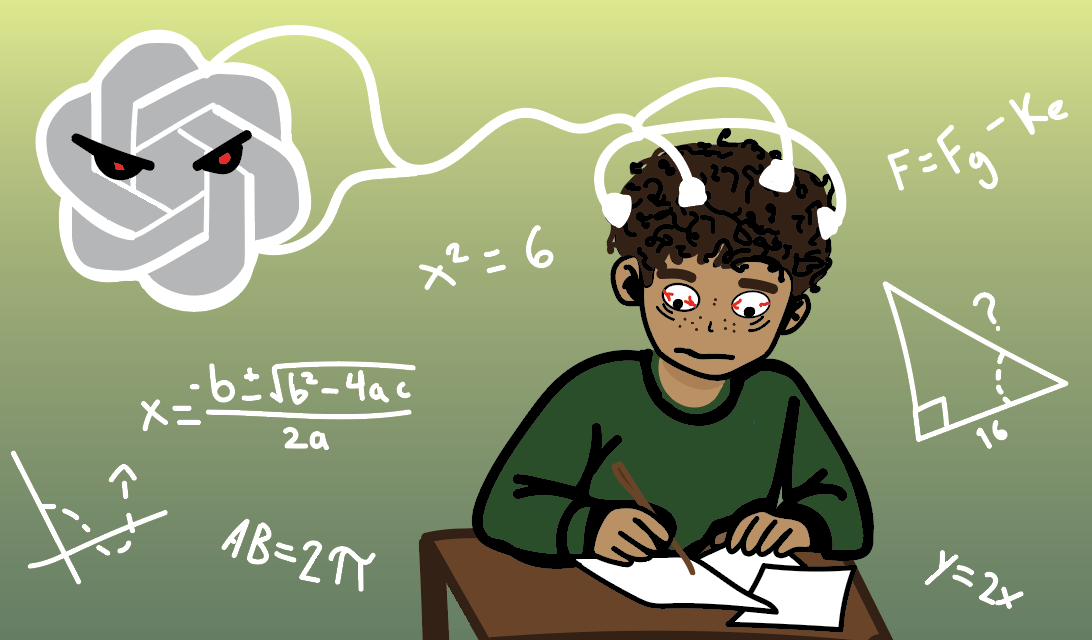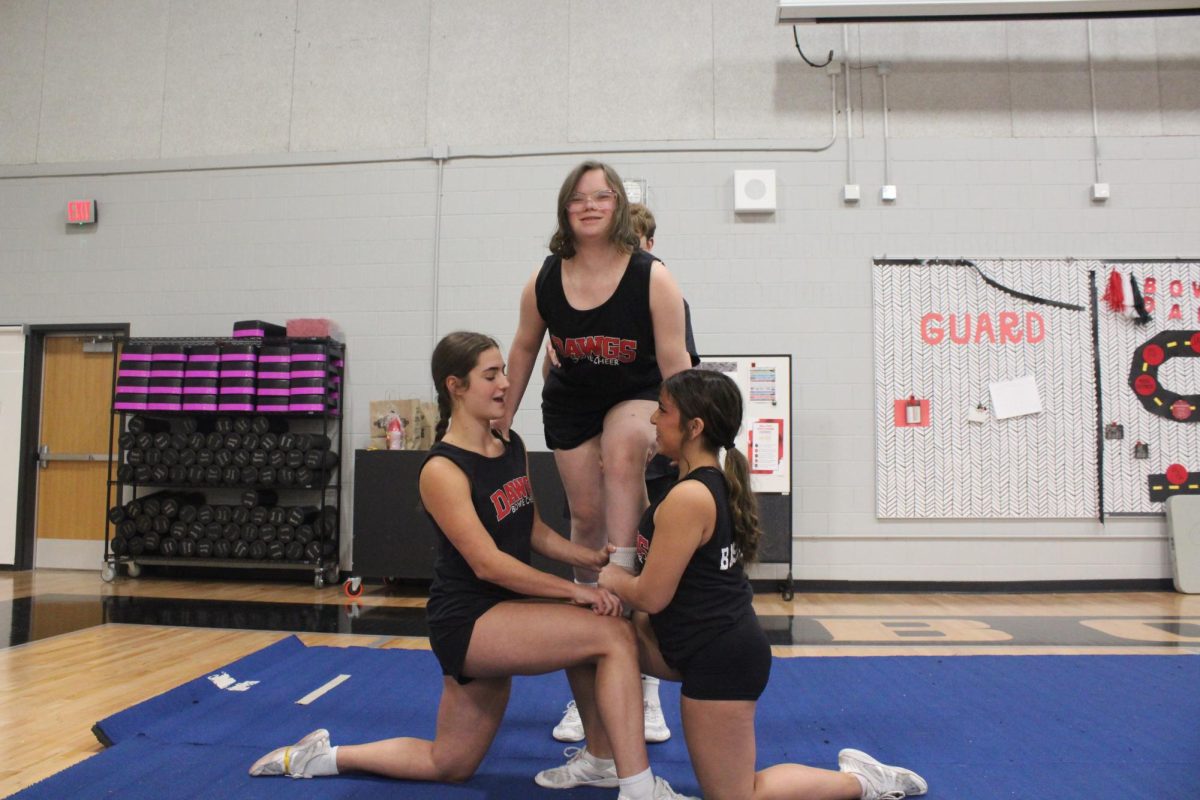What’s the scoop on getting the scoop?
October 19, 2018
Benefits of free press
Embedded in the core of the American society and government lies the freedom of press, one of the five basic rights provided by the First Amendment.
In recent years, the rising use of the term ‘fake news’ continues to increase public distrust of the media. Defined as the inaccurate reporting of information, ‘fake news’ is often used as a rallying point against journalism as a whole in attempts to discredit news organizations.
“Today’s politically-charged climate includes direct attacks on fundamental First Amendment freedoms on a daily basis from the president of the United States,” Journalism Education Association president Sarah Nichols said. “It’s disheartening to see an outright attack on a particular profession, but it’s clear that the president seeks to destroy the legitimacy of the media. Journalists will continue to report with truth and accuracy, operating ethically, despite these challenges, as their work matters more than ever.”
According to AP U.S. history and government teacher Carlen Floyd, the role of journalists has been crucial throughout history, from the beginning as English colonists through to Vietnam and Watergate.
“The free press has just been fundamental to having everything from being made aware of issues to being exposed to different opinions,” Floyd said. “From our very inception, it’s been critical; it’s set free democracies, liberal democracies, from other democracies where you have a free press but not really.”
Journalism has seen a shift to Online platforms over the years, but Nichols emphasizes the continuation of quality reporting by journalists no matter the method of distribution.
“Their role hasn’t changed over time even though just about every aspect of reporting, information-gathering, and delivery have,” Nichols said. “Part of reporting the truth is to hold those in power accountable, and in times when misinformation can be shared widely and without a critical eye, or if access to information is limited, the role of journalists intensifies.”
Fair reporting
For University of Texas journalism senior lecturer Kevin Robbins, it is essential for journalists to be “fair, neutral … and unafraid to tell the truth.”
“They should seek that truth through transparency and above-board channels,” Robbins said. “Journalists should never, ever deceive someone in an effort to find and reveal information in the public interest. They also should be aware of context and not distort facts in order to advance an agenda.”
Senior Editor-in-Chief of The Dispatch Cianna Chairez emphasizes the need to be objective in reporting, something she pushes her staff to do on a daily basis.
“As a journalist, your ultimate goal is to inform your audience and not to spread propaganda, sensationalize news, or try and sell your product,” Chairez said. “Our job is to do the best we can possibly do to inform the public of the hard facts and let them base their own opinions off of that.”
In order to retain trust from the public, Robbins encourages journalists to continue their role as informants.
“Journalists in today’s world, at least in a democracy like ours, should embrace their essential, constitutionally protected roles as seekers of truth, watchdogs of government, champions of openness and tellers of stories that give meaning to confusion and order to chaos,” Robbins said.
First amendment
While the professional press is protected by the First Amendment, these rights do not fully extend to student journalists.
“Schools, according to Supreme Court cases, are responsible for teaching journalism, journalistic integrity and journalistic skills,” Floyd said. “School newspapers are not like the free press. [They are] school sponsored, which means taxpayer sponsored, which means different sets of guidelines, rules, and potential regulations.”
In 1988, the Supreme Court case Hazelwood v. Kuhlmeier ruled that a school’s administration has the right to enforce prior review should they have legitimate reason to believe learning will be affected, which means that stories must be approved by the administration before publishing.
“Some states have press rights or free expression laws to protect students and others do not,” Nichols said. “Censorship strips students of the decision-making process, stifling the learning experience and negatively affecting the publication and the readers it serves.”
According to Interscholastic League Press Conference assistant director Jeanne Acton, Texas currently allows prior review, although some school administrators choose to act on it and others don’t.
“Some schools have principals that give them more leeway and allow them to cover more controversial things, but not every school in the state of Texas allows that,” Acton said. “It is incumbent upon the editors to build a trusting relationship with their principal to try to get that and it doesn’t always work.”
Censorship issue
Nation Online of Prosper High School in Prosper, Texas was put under prior review by their new principal John Burdett. The first was a news piece regarding the cancellation of a senior reward and was followed by two editorials, one over the removal of a book from the sophomore reading list and the other discussing an activity on National Walkout Day.
“The three recurring themes to why he censored all three stories were because they were, ‘negative, not uplifting to the school and cast our school in a bad light,’” senior Editor-in-Chief of Eagle Nation Online Neha Madhira said.
After the second story was censored, Burdett began prior reviewing the paper. In March, the staff was informed that their award-winning adviser, Lori Oglesbee-Petter, would not be recommended for renewal the following year.
“The editorial board was very upset because she was not only our adviser but our second mother, so we wrote a letter to the principal, the superintendent and the school board expressing all of our concerns,” Madhira said. “We received deafening silence and soon found out Ms. Oglesbee would be fired.”
Editorials were banned after the second editorial was censored, and Burdett would not meet with the staff to discuss this policy, only the new adviser. This pushed Madhira to reach out to the Student Press Law Center (SPLC) and the Journalism Education Association Scholastic Press Rights Committee (JEA SPRC) about the situation.
“The editorial board members and I drafted a press release with the help of SPLC legal consultant Mike Hiestand and JEA SPRC member Lori Keekley and took it to local publications,” Madhira said. “They wouldn’t publish it and we didn’t know why, so the SPLC published it directly on their website. Our administration was silent all summer so we just kept pushing and received coverage from over 18 local and national news publications, including the New York Times.”
It was important to Madhira that the staff continued pressing the issue, as she felt that prior review negatively impacts the learning process of a student journalist. In their first meeting with the new adviser, Lisa Roskens, the staff was told that Burdett would no longer be prior reviewing and that editorials were allowed again.
“A student newspaper is not a free-for-all, but it is a place where we express our voices as well as speak for others who do not have the platform,” Madhira said. “We are definitely overjoyed we can be a more free student press and have written multiple opinion pieces since.”
New voices
This process introduced Madhira to New Voices, a national, student-led movement to bring First Amendment rights to students. Currently, 14 states have passed the law, and Madhira hopes to get Texas’ bill, which includes adviser protection, passed despite the fight against it.
“Everything that happened at our school really opened my eyes, not only because of the actual process in getting our administration to talk, but because of all of the censorship stories I heard from other students who sent me messages of support,” Madhira said. “I knew our story couldn’t just end at our school, so I basically worked on New Voices all summer.”
Madhira continues to promote the importance of student voice through managing the New Voices Texas’ social media, speaking at conventions, and talking to lawmakers.
“When students are belittled and told they cannot express what they feel is important for the school to know, I think they’re going to feel the same way when they are older and working for larger news publications,” Madhira said. “It can be daunting to speak out when you feel you don’t have many supporting you, but your voice can make all the difference.”
Journalism at bowie
Principal Mark Robinson looks to The Dispatch to get a feel for what changes need to be made around campus.
“Student voice is very important to me because I want to make sure that the work we are doing reflects the work that needs to be done,” Robinson said. “I want to make sure that our priorities are the right priorities to make an overall better experience for the students that we serve. If it is important enough for a student to write about, it is important enough for me to get informed about it so I know what is going on.”
For yearbook adviser Lindsey Shirack, a school publication that is not student-led comes with credibility concerns.
“Can a publication claim to be the voice of the students if it’s really just a public relations front for the administration?” Shirack said. “Certainly one of the goals of student publications is to clarify changes or policies that will affect students in an accurate way, but it’s also to communicate the effects, whether positive or negative, of those changes for everyone from the majority to the most marginalized.”
The Dispatch is a student-led publication that serves as an open forum of student expression and is not held to prior review by the administration. The adviser, Michael Reeves, does not prohibit discussion between students and instead strictly guides them and checks all stories for libel and slander.
“Luckily, we are fortunate enough to have the freedom to publish the stories we want to publish,” Chairez said. “However, I do believe that there are instances in which we self-censor and will hold a story from being published out of an almost cautionary instinct. I think sometimes we lean towards less controversial stories out of this mindset that we don’t want to offend anybody.”
Robinson sees journalism as a class that teaches critical thinking, which allows students to learn how to present things in a way that helps others form informed opinions.
“Not everyone’s going to know [the facts] all the time, and one of the big mistakes that we make as people is walking around with either preconceived notions or just knee-jerk reactions to things that we hear that are uninformed opinions,” Robinson said. “It is very important, for democracy to work, that we have access to information and we think critically about it and we know what that tells us, so we can then form opinions that are informed.”
Chairez credits being on staff with teaching her to see from different perspectives.
“I’ve covered many stories in my three years in this program and every story takes me down a new avenue of the school,” Chairez said. “I believe that getting the opportunity to interview different people around campus has given me the ability to gain a new understanding for what these students and teachers represent. In the same way that journalism defines my high school career, I get to learn about what defines others.”
According to Acton, journalism is one of the most important classes students can take in high school.
“It teaches communication, it teaches writing, critical thinking, problem solving, deadlines, how to multi-task,” Acton said. “No matter what field you go in you have to know how to communicate, you have to know how to write, how to problem solve. I don’t think there’s a class out there that teaches as many life important skills as journalism.”
As an Editor-in-Chief of the school yearbook, The Lone Star, senior Sophie Bega leads a staff of 160. The perception of journalism in mass media has caused Bega to be more attentive to what the staff covers.
“Mass media today has a negative connotation to it, and it’s mostly due to our current [presidential] administration,” Bega said. “The right to freedom of the press has been tested, and it’s affected all journalists, even us at a high school level. I want to make sure we are getting a fair representation of the entire school instead of a select group that may share the same opinions as me.”
In addition to informing the school, journalism also serves as a historical archive.
“As I’ve gotten to read about some of the things that were written over the years, it tells me what was happening, what people were concerned about over the years,” Robinson said. “It provides so much more commentary, so much more editorial, so much more information about what people were thinking and dealing with at the time.”
Former Editor-in-Chief of The Dispatch Violet Glenewinkel feels the role of journalists is to “tell the story of humankind,” even through stories as seemingly simple as a music review.
“Everything journalists produced is a story meant to inform the public, whether that’s now, tomorrow, or years from now,” Glenewinkel said. “Without journalists and their stories, would we know half of the stuff we do now about fifty years ago? We are recording the history of now.”
Chairez hopes for The Dispatch to be the source students, teachers, and parents go to for information about what is happening on campus.
“Whether it’s a story about our football game winning district or a commentary about gun rights, everything we put in the paper is relevant to our audience,” Chairez said. “I think it’s beneficial for us to reflect the student voice as well as bring up topics that inspire conversation.”








